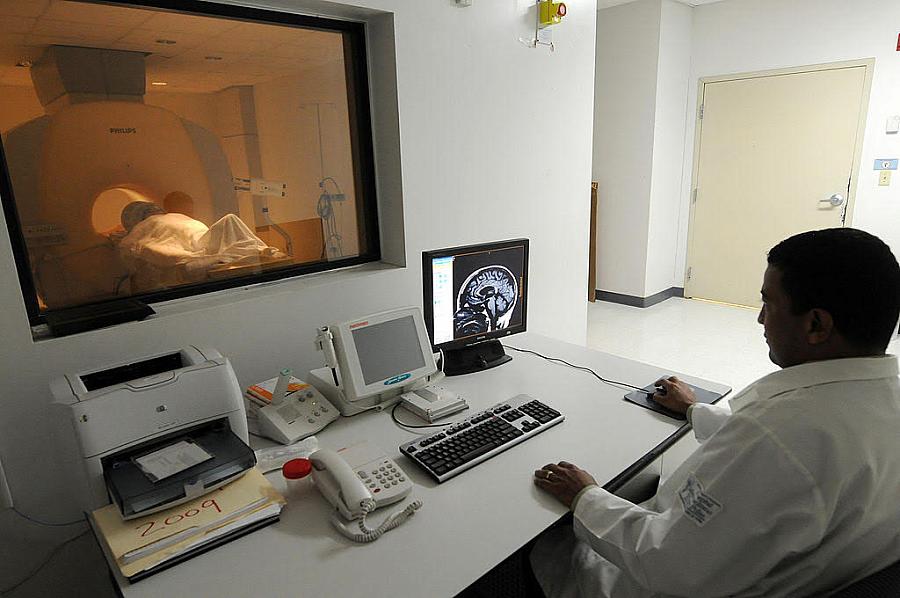Target staffs up for weekends and holidays. Why don't hospitals?

Miguel Alvarez/Getty Images
A friend was in the hospital shortly before the New Year. I stopped by to visit. It seemed that her kidney function was grinding to a halt, and she needed special testing to determine the cause. A CT scan had not been conclusive, so the only thing a parade of specialists could agree on was that a nuclear medicine scan was necessary. I had never heard of the test her doctors ordered, called a MAG-3 renogram. But no matter. It would provide an answer and guide treatment. The question was: surgery or no surgery?
“So you’ll know in a couple of days,” I said.
“Well, no,” she said, frowning. “It’s a long weekend and New Year’s. So it will be four or five days before I can get the test.”
And yet another day or two to get the results and suggested treatment. She had fallen into the no man’s land of the hospital, also known as the Friday admission.
Hospitals are open 24 hours a day, seven days a week. Yet, unlike retail stores like Target that bring in extra staff members to meet demand on weekends and holidays, hospitals slow down or shutter their services, driving up health care costs (hospital beds aren’t cheap) with delayed discharge dates and potentially exposing patients to deadly infections — more likely during longer stays.
My friend’s rounding doctor confirmed what she said. “Nuclear medicine doesn’t work on weekends,” he said, grumpy and probably jealous. He had drawn the holiday weekend short straw. Meanwhile, her nurse was clearly overwhelmed from taking care of more patients due to fewer staff on the weekend.
Sorry, Blue Cross. Thanks to an entire specialty of medicine declaring itself off the clock for two or three days a week, you get to pay for additional nursing, a hospital bed, lab tests, daily doctor visits, food, chronic medications, janitorial, and who knows what else while such patients remain too much of a risk to go home but still lacking the clarity of a treatable diagnosis.
Can you imagine a pallet of basketballs arriving at Target and sitting out on the sales floor all weekend because there were not enough employees to put them away? Me neither.
I encountered this problem routinely while working at hospitals. “The social worker is off on Fridays, so we have to wait until Monday for a nursing home transfer.” “The pathologist isn’t here, so we have to wait for a diagnosis.” “There are only emergency MRIs on the weekend and it’s a long weekend, so … ”
The medical literature unequivocally reports that hospital care on the weekends is just plain worse. Prostate cancer patients with metastatic disease who are admitted on the weekend do worse. USC doctors found that hospital-acquired infections, length of stay, and cost go up with weekend admissions, as I had suspected. Even for planned, elective admissions, weekend entry to the hospital carries a higher risk of death. Kids with leukemia admitted on the weekend? They are more likely to end up on a ventilator to breathe.
There may be some hope. I believe that the rise of hospitalists — hospital-only doctors who are the “main” doctors coordinating care for adult patients — may help the weekend slump in care. Hospitalists often work seven days on and seven days off, so they have dedicated time in the hospital on the weekends to do things like orchestrate timely discharges for their patients (a skill that takes persuasion, phone calls, and MacGyvering). In the past, outpatient doctors also saw their patients on the weekends in the hospital, but were often tugged away by the demands of kids, spouses, chores and the like. They were known to “speed-round” on their patients — dash off a few notes, and run home, avoiding the tedium of discharging the patient.
Still, hospitalists are often hamstrung by the lack of services on the weekends as well. There is no need to have an in-house pathologist, an MRI tech and an educator for newly diagnosed diabetes every moment of every day, but better availability of such staff would equalize the quality of care for patients admitted on weekdays versus weekends. Hospitals can invest in paying support staff a fee to be on call for weekends and holidays, and pay bonuses for each patient seen when they come in to work. (This is already done for some kinds of staff, but I am suggesting a wide expansion of weekend availability — for extra nurses to be called in quickly when new patients are admitted, for example.) Hospitals can also create policies for certain tests and studies. For example, for test X, no patient should wait more than 48 hours, and then build that into contracts with doctors like interventional radiologists.
Insurance companies could potentially help (and help themselves in the process) by paying a small bonus to non-hospital physicians, who bill insurers directly, for weekend or holiday work. That way, when a nuclear medicine doctor is needed, she is incentivized to come in for scan that could get a patient diagnosed and home sooner, instead of thinking “Why would I come in on a weekend when I’ll get paid the same to do it on Monday?”
Patients admitted on the weekend deserve the same level and speed of care as patients admitted during the week. Lives literally depend on it. In this on-demand economy, hospitals need to stop holding bankers’ hours and start acting more like consumer-driven businesses.

